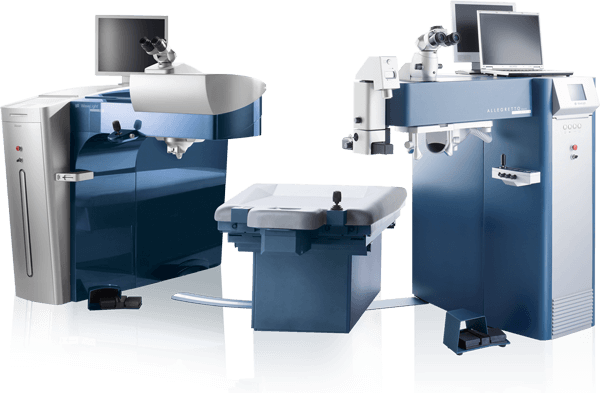LASIK IN DALLAS & FORT WORTH
Live Agent
Questions About Lasik or Cataract Surgery?
Talk to a LIVE Agent!
Monday - Friday: 7:30AM - 9:00 PM
Saturday - Sunday: 11:00 - 5:00 PM
LASIK Eye Surgery in the Dallas/Fort Worth Area

If you want to enjoy clearer vision without relying on prescription eyewear, LASIK is a great option to consider. This life-changing vision correction surgery can fix nearsightedness, farsightedness, and astigmatism to provide results that last a lifetime.
At Tylock-George Eye Care and Laser Center, Dr. Michael George, Medical Director, and our surgical team will customize your LASIK surgery to meet your unique needs. Our eye care clinic is home to some of the top refractive surgeons and staff in the Dallas/Fort Worth area that will deliver optimum results for your vision.
How Does LASIK Work in Dallas?
During your LASIK surgery, the team at Tylock-George will use a laser to gently reshape your cornea and correct your vision. The procedure takes roughly five minutes, is virtually painless, and you can expect to start experiencing results in as little as 24 hours. Our doctors will discuss the specifics of your procedure and recovery during your consultation and Dr. George will review your results and perform an additional examination on the day of your procedure.
Advanced LASIK Technology?
At Tylock-George Eye Care and Laser Center, we use the latest technologies to ensure that your LASIK eye surgery is safe, effective, and precise. To give you the most consistent, accurate results, we offer all-laser, custom IntraLASIK with the Alcon WaveLight FS200 Femtosecond 200KHz laser and the WaveLight EX500 laser. Click here to learn more about the State of the Art Wavelight Refractive Suite
The team at Tylock-George Eye Care and Laser Center is the first in Texas to offer Contoura Vision Topography Guided LASIK. This FDA-approved technology is the most advanced LASIK equipment available, giving patients the best vision outcomes. Contoura Vision allows for the most customized LASIK surgery possible, delivering results tailored to your exact needs.
How Much Does LASIK in Dallas Cost?
The cost of your LASIK surgery depends on a variety of factors, including your customized and unique treatment plan, the details of your procedure, and the surgeon handling your procedure. At Tylock-George, we strive to make Dallas LASIK as affordable as possible, offering flexible financing options.
Our team will work to meet your budget to give you the most affordable, personalized treatment available. Learn more about the cost of LASIK in Dallas.
Benefits of Fort Worth LASIK
LASIK eye surgery greatly improves our patients’ independence and ability to function without glasses or contacts. LASIK surgery can help increase your physical activity level, ability to drive, and overall quality of life. Saying goodbye to corrective eyewear can mean no more itchy contacts during allergy season, saving money on glasses, contact lenses and solution, and never worrying about forgetting your corrective lenses again.
To understand how LASIK can directly improve your lifestyle, talk to our laser surgery team today!
Am I a Candidate for LASIK in Dallas?
If you suffer from nearsightedness, farsightedness, or astigmatism and have had a stable vision prescription for over a year, then LASIK could be a great option for you. Our physicians will examine factors including your age, overall health, and lifestyle demands to determine if you’re a good candidate for LASIK.
Why Choose Tylock-George for your LASIK Surgery in the DFW Area?
Led by Michael George, M.D., Tylock-George is proud to be a premier LASIK provider not only in the area, but throughout the country. With over 40 years of combined experience, our LASIK surgeons and staff will ensure your safety, well-being, and walk you through every step of your LASIK process.
Schedule your LASIK consultation today and take the first steps toward a clearer tomorrow!
Call Today, See Better Tomorrow!

Live Agent
Questions About Lasik or Cataract Surgery?
Talk to a LIVE Agent!
Monday - Friday: 7:30AM - 9:00 PM
Saturday - Sunday: 11:00 - 5:00 PM
Four Convenient Locations for Great Vision
We want to make sure you’re never too far away from exceptional vision surgeons and have four locations throughout the area to serve you better. Schedule your consultation at your nearest Tylock-George Eye Care office today!













